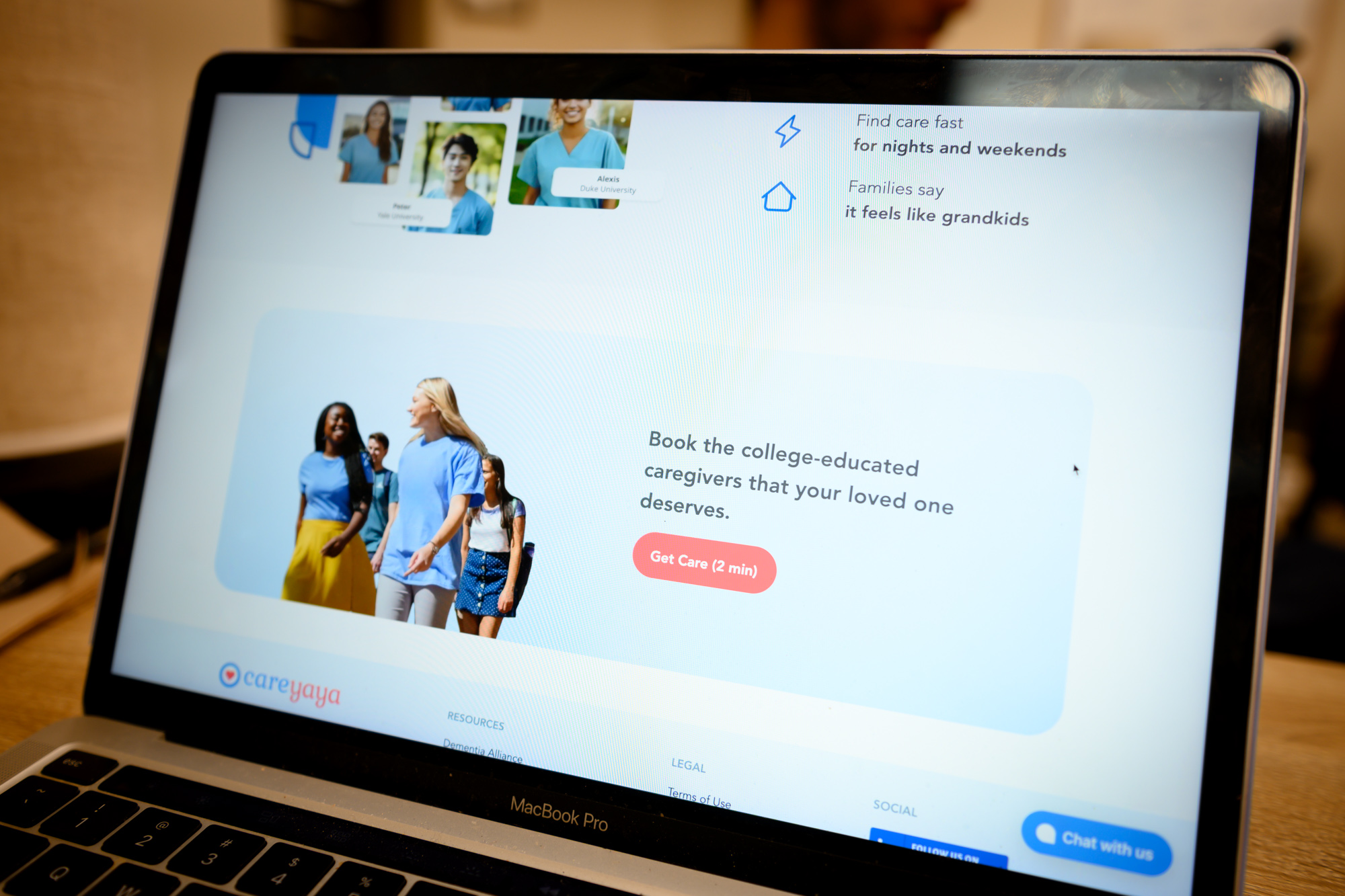Jennifer Cheung, a sophomore pre-med biology student in the College of Arts and Sciences, said she wanted to make sure a career in healthcare was right for her. She applied to a caregiving program, and soon found herself assisting a woman in her home by cleaning and helping her move around when she needed help.
“I was a little bit nervous to go to a random stranger’s house, but she was really welcoming,” Cheung said. “It was really nice to just get to know her one on one and to talk with her and be able to listen to what she needed from me.”

Cheung was a caregiver for CareYaya, a North Carolina healthcare startup founded in 2021 that recently came to Boston.
As a caregiver himself, Neal K. Shah, co-founder and CEO of CareYaya, said he had an understanding of the issues in the healthcare system after taking care of his wife and grandfather.
“I think experiencing it first hand was kind of like a reality check,” he said. “It also led to an obsession.”
Shah decided to take advantage of the opportunity to bring new people and new technology into the healthcare economy, he said. The startup matches families with caregivers in the community who are all college students through the CareYaya website.
Towards the end of 2023, the company quickly gained popularity at college campuses, bringing them to Boston.
“The Boston area actually just kind of went totally viral through word of mouth,” Shah said.
The company saw applications from a multitude of colleges in the Boston area, including BU, Harvard University, Tufts University, Boston College and Brandeis University.
Shah also gave credit to many pre-health advising groups that encouraged and aided in the increase of inbound applications for CareYaya from college students in Boston.
Cheung said she found out about CareYaya through a weekly pre-health advising email that listed opportunities for clinical experience.
“I think it helped me gain experience in talking to patients, or just giving kind and caring responses,” she said.
Cheung said CareYaya also works with the lifestyle of full-time college students, offering the caregivers more flexibility when scheduling their shifts.
“That’s something I liked about CareYaya. They kind of just let you choose,” she said.
Emma Belk, a junior at UNC-Chapel Hill who also works with CareYaya as a brand strategist, said one of the things she loved about CareYaya was that, “it allows this opportunity for students to be reminded about why they want to enter the healthcare industry.”
Harboring a massive concentration of college students and being a less affordable area for eldercare creates a demand for CareYaya in the Boston area, Shah said. The company allows families to directly book and schedule while the caregivers are paid directly.
Shah said CareYaya has been focusing on integrating AI into therapeutics and diagnostics for elderly populations.
Shah also said he wants to apply this AI technology to address the gap in family caregiver education that would give family members with limited healthcare experience resources to learn how to best care for individuals.
Just as CareYaya has been able to grow, another growth is reflected in the college students, like Cheung, who have developed relationships with the individuals they care for.
“I create memorable experiences that I could actually talk about,” Cheung said. “Having that personal connection with that person would be easy to learn something from.”






















































































































